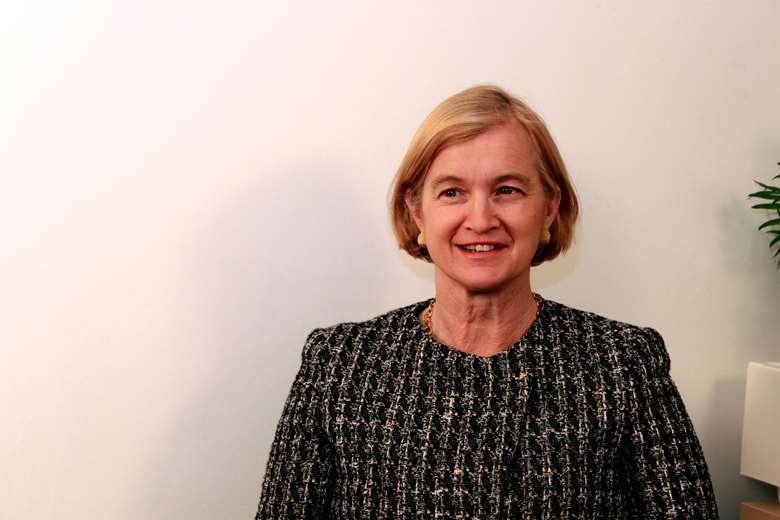Ofsted chief raises concerns over standard of Steiner schools
Nina Jacobs
Tuesday, July 23, 2019
Three-quarters of Steiner schools are not delivering high-quality education with some raising serious concerns over safeguarding issues and effective leadership, Ofsted's chief inspector has warned.

In a letter to Education Secretary Damian Hinds reporting the findings of the latest round of inspections, Amanda Spielman said the overall performance of Steiner schools "remains poor" with areas of weakness that need to be addressed.
Steiner schools have a broad curriculum that emphasises emotional, physical and spiritual learning alongside academic, and is structured around the different phases of child development. Some are independent and run as free schools, while others are academies and maintained by councils.
Of 26 Steiner schools inspected by Ofsted at the request of the Department of Education, 13 were judged "inadequate", seven "requires improvement" and six "good".
This means 77 per cent of Steiner schools have been judged to be less than good, compared with 15 per cent of state-funded schools according to the latest inspection ratings, the letter states.
Furthermore, 15 of the 22 independent Steiner schools inspected failed to meet the Independent School standards, it adds.
"The performance of Steiner schools overall remains poor, and there are areas of weakness that need to be addressed," said Spielman.
"Most worryingly, inspectors found that a significant minority of the schools had ineffective safeguarding practices, and I continue to be concerned about the provision for pupils with SEND, about quality of education more generally and about leadership."
In 2018, Hinds commissioned Ofsted to inspect a selection of independent Steiner schools and to increase monitoring of School Inspection Service inspections. This was in addition to Ofsted's routine inspection of Steiner academies.
In January, Ofsted rated Steiner Academy Bristol as inadequate.
Spielman said the latest inspections found the majority of Steiner schools had effective safeguarding practices in place, but more than a third were judged ineffective and inspectors found "serious" issues at these settings. Some schools had failed to check whether staff or host families for boarding pupils were safe to work with children.
"In the worst cases, schools failed to make appropriate and timely referrals to the local authority when pupils were clearly at risk of harm," the letter states.
"Inspectors also witnessed staff using inappropriate physical interventions."
The inspections found "shortcomings" in the quality of teaching and outcomes for all pupils across the majority of the schools. Fewer than a third were judged to have good teaching, learning and assessment.
Spielman also raises concerns about the provision for pupils with special educational needs and disabilities (SEND) which she said is "weak" in several schools.
Despite some improving and good practice in this area, children were not receiving the support they needed in too many cases, she added.
"I am concerned that in some of the schools, children with SEND were found to be disproportionately excluded or absent."
Spielman concludes that since half of the schools were judged inadequate for leadership, "it is clear this is the reason for many of the weaknesses we identified".
"Common issues included a lack of clarity over accountability, with leaders and teachers not being held to account," she said.
"The high level of complaints we receive about state-funded Steiner schools, mostly from parents, also reflects others' concerns about leadership," she added.
She praised several schools for recognising issues around leadership and for taking steps to address their problems.
In addition, other schools had demonstrated evidence that they wanted to improve areas of weakness.
But she flagged up "considerable change" for the Steiner community, which has seen two of its independent schools close during the current academic year. Three Steiner academies were also in the process of "rebrokering into a multi-academy trust", she added.
The DfE said it was working with the Steiner Waldorf School Fellowship (SWSF), a membership organisation for all Steiner schools and independent early years settings.
"Where any school fails to meet the required standards, we will not hesitate to take action.
"As a result of the Education Secretary's request for Ofsted to conduct a series of inspections of Steiner schools, we have already started work to transfer all three academies to a strong trust and taken regulatory action against 15 independent schools," a DfE spokesperson said.
Ofsted's letter to the department highlighted areas of good practice in Steiner schools and it was working with SWSF to ensure that best practice was more common place across the group, they added.
An SWSF spokesperson said: "Amanda Spielman's letter highlights several of the steps that SWSF is taking to guide school improvement and we share a common purpose to ensure all our children are well-educated and safe.
"There is no compromise where the education or safeguarding of pupils is concerned.
"As a fellowship, we are committed to providing high-quality teaching built on the internationally valued principles of Waldorf education and we continue to work closely with our schools and Ofsted to achieve this goal."




